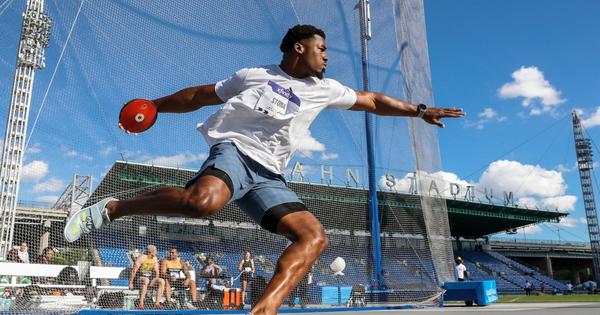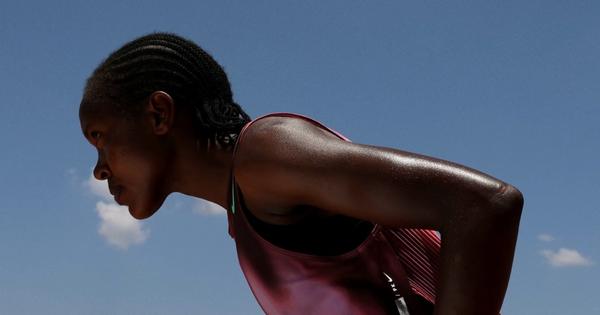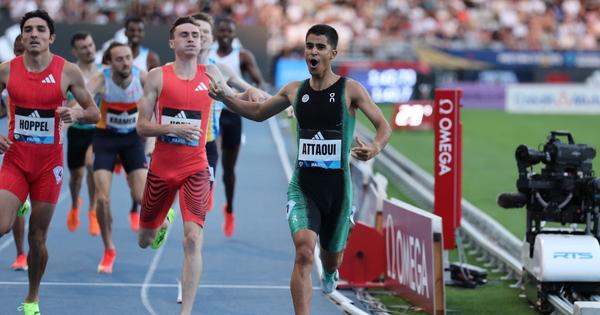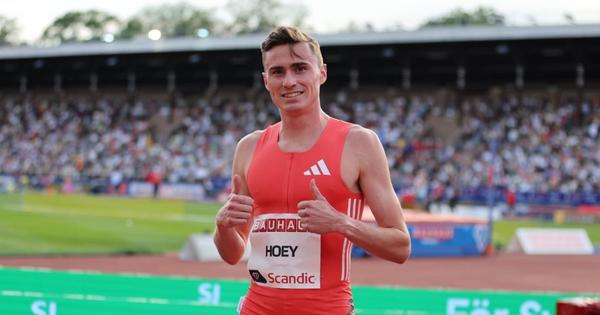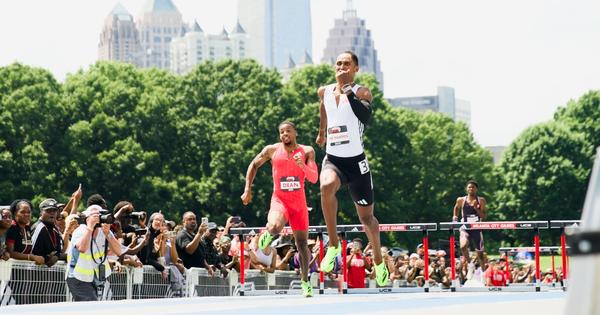By Paul Hof-Mahoney
June 25, 2025
Last Wednesday night, there were some very intriguing murmurs spreading throughout track Twitter. To understand those murmurs, however, we need to look a few days earlier at more murmurs that the Turkish Ministry of Sports was allegedly offering highly-lucrative financial incentives to Jamaican athletes that would be willing to transfer their allegiance ahead of the 2028 Olympics.
With details left incredibly vague, it seemed as though there were a few major announcements on the horizon, and Detective Paulie Throws was able to bust out a comically small magnifying glass to put together an absolute stunner: all signs were pointing towards Rojé Stona, the Jamaican Olympic discus champion… becoming Turkish?
On Thursday morning, a string of news reports, first announced by Kayon Raynor, decimated Jamaica’s talent pool in the field events. First, it was Stona and shot put bronze medalist Rajindra Campbell, the only two Jamaican throwers to ever win Olympic medals. Then, it was Jaydon Hibbert, the triple jump prodigy who owns the nine best marks ever by a junior athlete, who finished fourth in Paris at only 19. The final blow (for now) came in the form of Wayne Pinnock, long jump silver medalist in Budapest, Paris, and Nanjing. In the blink of an eye, Jamaica lost half of their medals from last year. A few days later, Nigerian sprint star Favour Ofili joined the Jamaican quartet in their move to Anatolia.
So what are we supposed to make of this? Allegiance transfers have been a thing for a long time, whether it’s Americans following grandparental lineage to boost their chances of making a team or Cubans sweeping the Olympic triple jump podium while wearing Spanish, Portuguese, and Italian kits. But this very clearly feels different. Not only do the athletes (seemingly) have no prior connection to their destination federation and are making no claims resembling political asylum, but the very public discussion of financial incentives gives these moves a “free agency with no salary cap” vibe that feels somewhat icky. If it’s this easy to pry top-tier talent away from its home nation, then the floodgates are open for richer federations (if there is such a thing as a rich governing body of track and field) to simply buy athletes from smaller nations.
When you look a little deeper than the eye-popping $500,000 signing bonus (which apparently athletes won’t actually get until they actually don the red and white), these decisions symbolize something so much bigger than a pretty paycheck. Both the Jamaican (JAAA) and Nigerian (AFN) federations have developed a track record of, in kind terms, disorganization. In not-so-kind terms, they’ve burned a lot of bridges with more than a few of their star athletes the last few years.
AFN’s errors have been more glaringly obvious. 10 athletes, including Ofili, were disqualified days before competing at the Tokyo Olympics for improper testing procedures, and Ofili also found out three days before the 100m prelims in Paris that AFN had simply failed to enter her, despite her having qualified. The writing was on the wall for Ofili’s relationship with AFN, and she shared as much in an Instagram post last July. Her case to the AIU surrounding her transfer is that it isn’t based on financial incentives, and you really can’t blame her. Annette Echikunwoke, a hammer thrower who also was on the receiving end of AFN’s incompetence in Tokyo, transferred back to the U.S. following that debacle and then won Olympic silver in Paris. It’s crazy what happens when these athletes are actually allowed to compete!
The case for the Jamaican athletes is slightly more nuanced. JAAA’s issues stem more from a sense of disrespect or neglect as opposed to incompetence (except for the unfortunate case of hammer thrower Nayoka Clunis, who, like Ofili, wasn’t entered in last year’s Olympics despite qualifying).
Danniel Thomas-Dodd laid these issues out plain and simple in an impassioned interview after the qualifying round of the women’s shot put in Paris, where she was impacted by not being given access to her coach for the two-and-a-half weeks she was in the Olympic village:
“These people [JOA and JAAA] don’t care about field events in Jamaica. If they did, they would make sure that we have everything we need… The gold medal that they were waiting for did not come from the track, it came from the field events, and those are the events that they neglect so much in Jamaica. Most of the medals we’ve gotten so far at these Games comes from the field events, and we’re the most marginalized groups within Jamaican track and field.”
If a statement like that on the sport’s biggest stage didn’t sink in for the officials at JAAA, maybe the one made by Stona, Campbell, Hibbert and Pinnock last week will.
The transfer comes with a three-year waiting period from an athlete’s last competition for their prior nation. For Stona and Hibbert, this means they’ll miss this year’s World Championships and the Commonwealth Games next year, but should be eligible to represent Turkey at the 2027 World Championships. For Campbell and Pinnock, who competed at World Indoors in March, they will also miss Worlds in 2027, and Pinnock won’t be able to compete in the first World Ultimate Championships next September. The money is nice, probably life-changing in most cases, but it also says a lot about the way JAAA fails to support their field eventers that bonafide global stars are willing to sacrifice several major championships to go to a federation where they’ll feel noticed at all.
The public response towards the athletes has, generally speaking, been positive. Fans seem to understand the desire of the athletes to seek support and appreciation they desperately deserve, and that’s the way it should be. The underlying issues that caused these moves have been known for years, but now they’re in plain view for the entire track and field world to see.
Surely, most if not all athletes’ preference would be to compete for their country of origin while feeling supported and financially stable. Favour Ofili, Jaydon Hibbert, and co. are charting a path that, for them, seeks to correct an imbalance between the incentives and constraints inherent in the challenges of being a professional athlete.
The ball shot put is now squarely in the court sector of JAAA, AFN, and any other national federation with shallow pockets and a tenuous relationship with their athletes. How do you respond to this?

Paul Hof-Mahoney
Paul is currently a student at the University of Florida (Go Gators) and is incredibly excited to be making his way into the track and field scene. He loves getting the opportunity to showcase the fascinating storylines that build up year-over-year across all events (but especially the throws).
